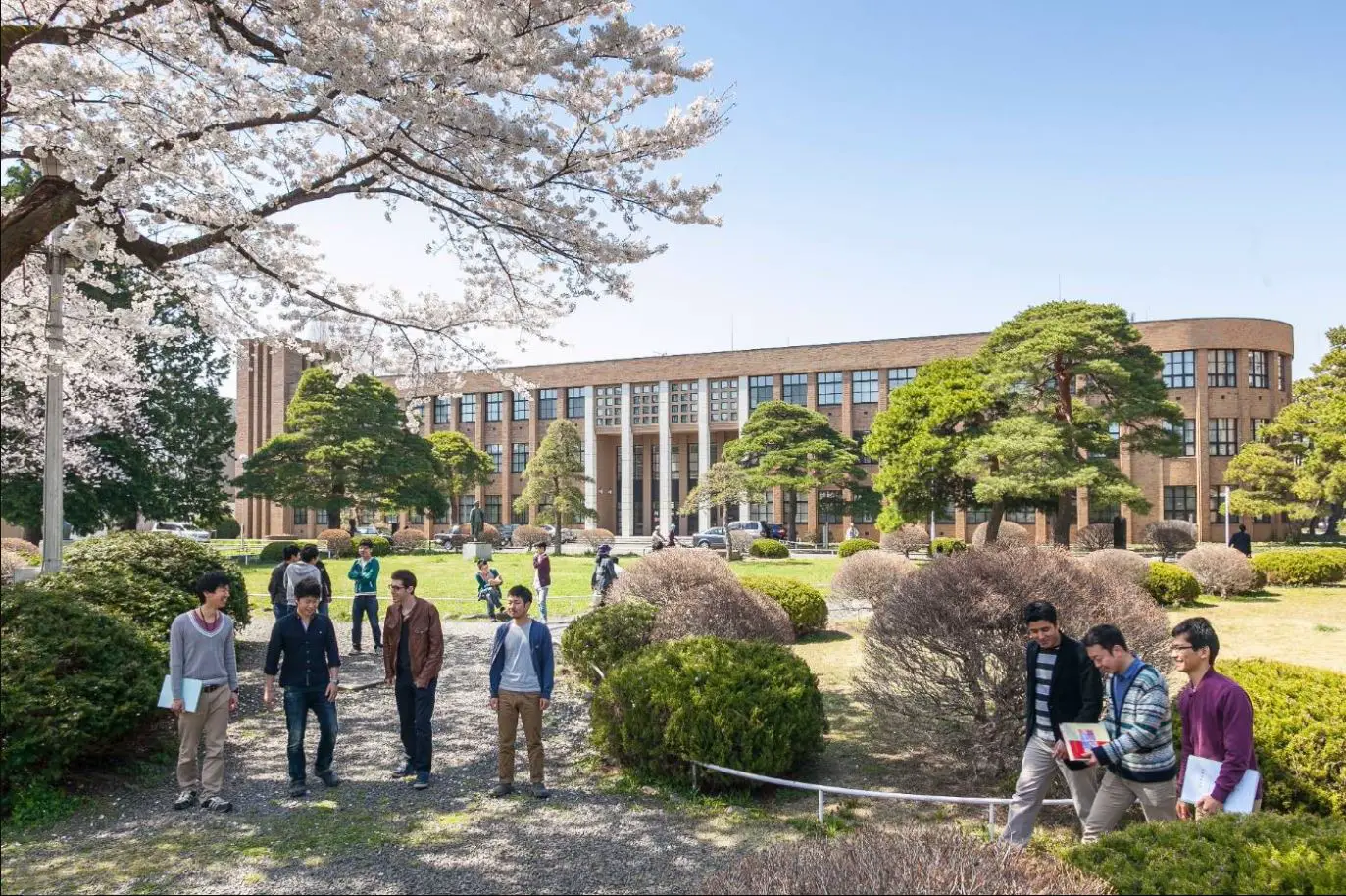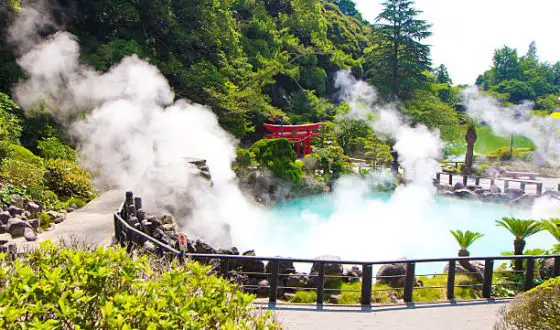Is Studying Abroad in Japan Worth It?
At this moment, more than 200,000 foreign students are studying abroad in Japan with high hope for not only a bright future but also a once in a lifetime experience here. What makes Japan become such an appealing destination for students all over the world? On the other hand, what makes you should reconsider that spontaneous conclusion? Discover all the pros and cons of studying abroad in Japan along with the best programs in this location guide.
Why studying abroad in Japan?
1. World-class educational system
Before we start, you may want to look at the quick guide to the educational system in Japan here.
Now it worth mentioning that Japan is always among the top countries for esteemed education in various fields. In fact, most of the recipients of the Nobel Prize (excluding Western) are Japanese, 22 people.
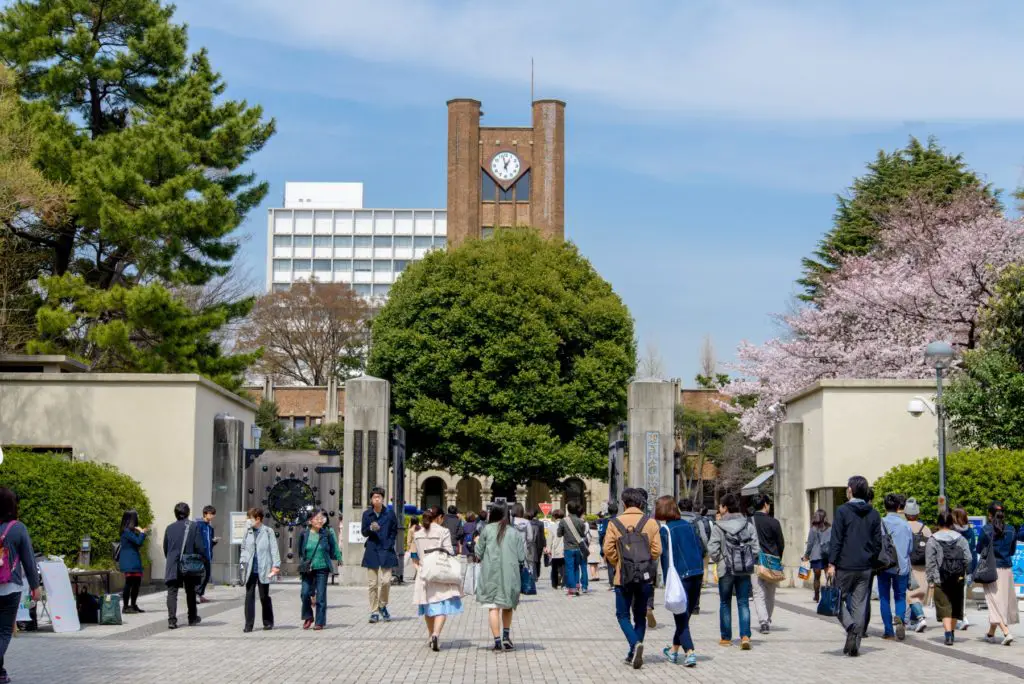
Many international students choose Japan as their study destination.
SEE MORE:
Among all majors, technology studies are definitely their strength as Japan itself has been a pioneer in this industry for the last 10 years. STEM (Science Technology Engineering Maths) programs are seriously boasted in Japanese universities. Those have also become so renowned internationally that many foreign students move to Japan studying high-tech knowledge ranging from AI (artificial intelligence), robotics, nanotechnology to other computer engineering-related fields.
Besides, Japan is still at the forefront of the economy and business. So it offers a wide variety of excellent universities in these areas. Another popular choice is the arts program. Just look at Japanese highly developed industries of manga (comics), anime, and fashion and you will see arts and cultural studies are important parts of this country. If you consider this option, you may want to research Tokyo University, the most prestigious liberal arts colleges in Japan, which offers exceptional academic courses in languages, history, literature, or the arts.
Please note that Japan’s high-quality education doesn’t limit to universities but it has numerous respected institutions like junior colleges or vocational schools accessible for foreign students. Japan’s government and educators are also really dedicated to compulsory education from elementary to high school levels.
2. Clean and well-orders country

People in Japan volunteer to clean the road.
Most people’s first impression when coming to Japan is the cleanliness of its streets, buildings and literally, everywhere you go. The traffic is well-organized itself so travelers find it easy go around the country. Above all, the crime rate here is extremely low as well which makes Japan quite safe and appealing to the parents of young students.
3. Job opportunities

The job market in Japan is really diverse.
There is a diverse range of job opportunities in Japan, one of the largest developed economies in the world. Especially, if you are proficient in both English and Japanese, you will find yourself in demand and can easily land a job in a global brand. For this reason, a lot of graduates choose to stay and pursue their careers here. However, even if you are incapable of using Japanese, you can still work as a tutor or English teacher. It is one of the highest paying jobs in Japan.
4. Renowned cuisine, nature, and cultures
They are funny but in fact crucial reasons for many people I met. Let’s be honest how can you live in a place for a long time if you can get used to the food? Japanese cuisine is worldwide famous and I guess you have tried it, maybe sushi or ramen, at least one before. You will know that Japanese dishes are really easy to eat and can be crazily savory at the same time. And there are so many affordable street food that it gonna take you years to explore all. If you want to cook at home, there are always some markets or convenience stores that provide you with the ingredients you need.

In Japan, you are centered around good food and drinks.
Not only will you enjoy the food here but the beautiful scenery of all seasons along with Japanese unique culture will take your breath away. Imagine a Sunday morning in spring when the whole of Tokyo is covered by cherry blossom, you wander around the temples, parks; join a festival and watch sumo. At night, you get together with friends at Akihabara for anime, shopping, and karaoke! If you study abroad here, then you’ll be able to experience all of this in your everyday life.

Japan has both a strong traditional culture and a modern fun side too.
5. High living quality
When studying abroad in Japan, I highly recommend you register for national health insurance. By that, you will acquire high-quality medical care with only 30% of the original cost. The cost will turn out to be much budget-friendly than those in Europe or the US. Most universities campus even have health clinics where students can receive first-aid, health tests, basic treatment, or consultations.

Medical services are highly available and reliable in Japan.
Another example of living quality here is the toilet. I am not kidding. The toilet in Japan, unlike the rest of the world, is very high-tech. It contains heated bidets, seat warmers for the cold winter and can play music to cover the awkward noises you may create.
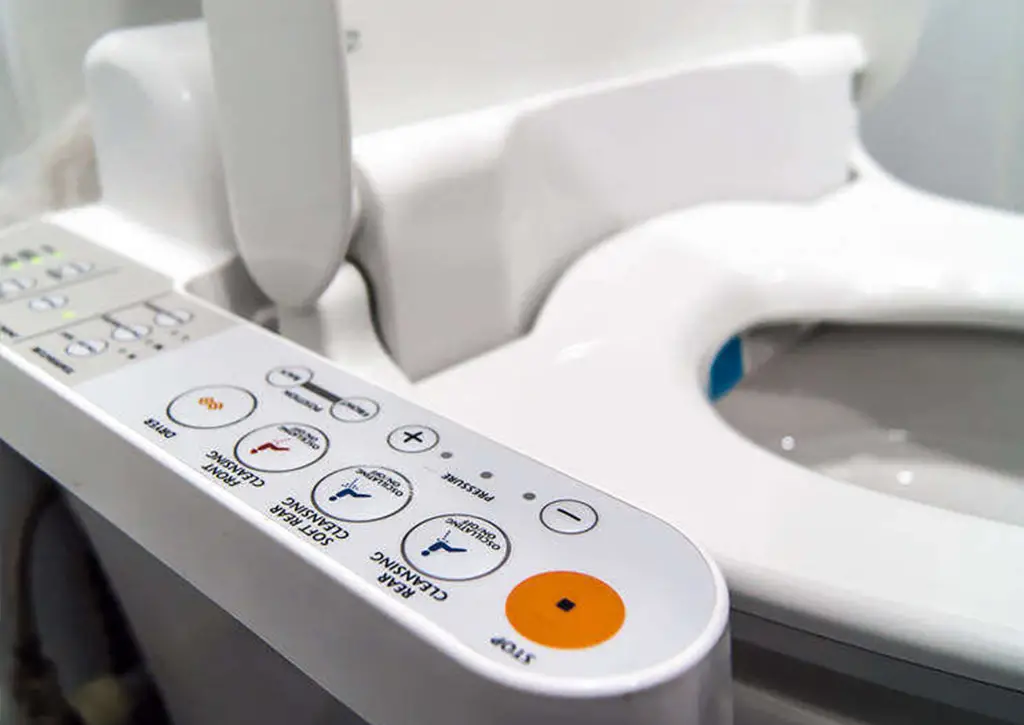
The toilet in Japan is at a whole new standard.
Every product and service in Japan is provided with the same dedicated care because Japanese businesses truly emphasize the quote “Customers are the god”. When in Japan, you will access all the ultimate comfort and convenience for a good life from the things you buy to the top-notch transport you take.
6 Become fluent in Japanese
As I mentioned before, fluent in Japanese would earn you a lot of advantages for your future career not only in Japan but in the US or anywhere else in the world. Because Japanese companies have gone international and international companies have trade or partnership with Japanese firms.
The problem is Japanese is never an easy language to learn. People outside of the Japanese spend a lot of money and time (usually years) at classes trying to master this language. But it will be much faster and more efficient when you have a chance to immerse yourself in the country of the language.

Communicating with a native speaker will cause you to think in Japanese and practice it till perfect
Why not studying abroad in Japan?
1. Cultural and language barrier
The moment you start your studying abroad in Japan, you have to accept that there are a number of cultural barrier and probably language challenges. Firstly, Japanese culture is significantly different from the Western world. You have to take off your shoes before entering any indoor area and eating while walking is considered impolite. Your study at universities’ centers is still more traditionally passive and individual rather than student interaction. It gonna take you a while to adapt.
Then, remember you should attend a Japanese course before your departure and maybe still go to a language school during your stay in Japan. Immersion itself can’t teach you the basics along with some difficult skills like reading or writing. Besides, not all Japanese speak English especially outside of Tokyo, so Japanese is the key to your survival in Japan.

In rural areas, many Japanese don’t use English.
2. Expensive:
To prepare you, mind that your rooms in the dorm are likely to be way too small compared to their prices. All condos in big cities are like that. Furthermore, you have to keep an eye on different expenses from accommodation to the university fee structure.
Furthermore, as the living quality is high, you have to pay the equivalent prices. Especially when it comes to traveling, the tickets fees to enter the robot café, Osaka’s castles, see Cherry Blossoms, or climb Mount Fuji are luxury.

Traveling in Japan is fun but costly.
3. Feeling of loneliness and homesick:
Japan is not always a fancy developed country, it can be a small lonely island as well. Foreign students are living far from their motherland and their families so it is understandable to suffer from homesickness. In Japan, the situation may be negative at first since people are not very open the right way. Even though we are still polite, it takes time to form a closer bond. More often, everyone would rather mind their business and stay in their own existing relationships. Therefore, newcomers may have a hard time making friends, getting used to this new and strange place.

Japanese would rather mind their business and stay in their own existing relationships.
4. Forget about Downtime
Japanese are not relaxers. Instead, we are quite workaholics and most of us don’t take spare time seriously (like in the US). We even need a model called ikigai (a reason for being) to fix the work-life balance problem. For instance, you may want to ask classmates out on weeknights, but they are simply busy working or studying something. Even if they are free, many of them prefer to stay at home, watching TV or reading manga.

Japanese are very hard-working and they expect you to be the same.
In case you come to Japan in a language camp project or a semester exchange, it will be pretty intensive. There is always something to do, from classes, commuting, excursions, or socializing with your host family, and leave you little time for your own hobbies. But just think, you’re making the most of your time in Japan! You can rest when you’re home!
5. High expectation
Japanese have high expectations for everything including their academics, appearance, or physical activities. We are sometimes quite extreme perfectionists so mistakes are barely acceptable. The second chance isn’t a thing here. So make your first impression good or else receive their quick judgment.

Studying in Japan maybe a little stressful since the expectation is high.
Although they may like you, they still can give straight feedback, for example on your appearance (weight, clothes…), Japanese language level. This may be not personal but regarding the sakes of a team or also a unique expression of the fact that they care about you. So please don’t be upset over these.
Programs for studying abroad in Japan
There are many websites or agencies introducing programs for studying abroad in Japan but not all of them are reliable and you can really tell, right? So, I have summed up a few recommended acknowledged options below:
Up to 1-year program
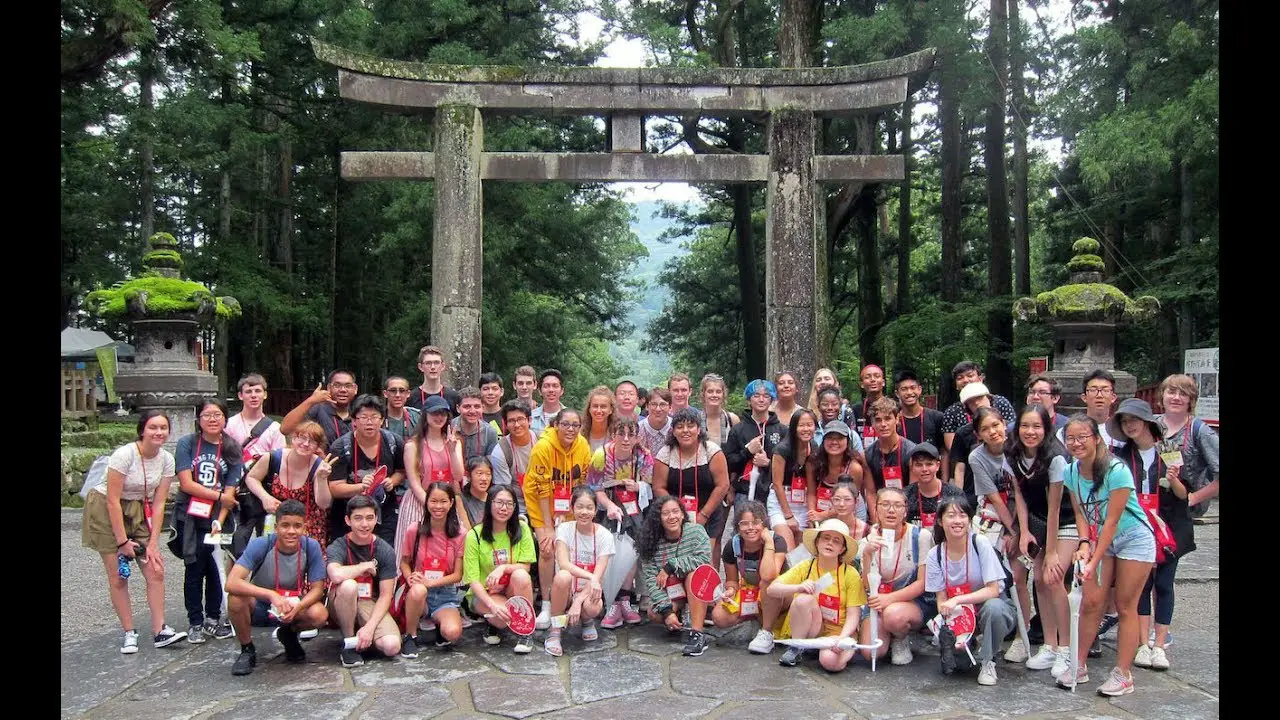
Short-term programs for studying abroad in Japan are usually related to language and culture.
- CISabroad: Gap year students love to participate in programs in CISabroad since they are diversely held in different places all over Japan. From business intern to language credit course in a university like J.F. Oberlin University, graphic design job to TEFL course. Besides, CIS Abroad provides good financial support scholarships and grants to most participants.
- KCP International: This is the top provider of some full-immersion language program in Tokyo, with academic credit (optional). After the courses, many KCP alumni have successfully applied to higher education at prestige school, for example, Tokyo University, Nagoya University, Waseda Universit … Others may work as a teacher in Japan in the JET program
- IES Abroad: This is a long-lasting organization that holds plenty of both education and internship abroad programs in different countries including Japan. However, most of the programs are usually short-term, for example, summer in Japan in a language and culture program.
- Athena Study Abroad: If you look for courses in arts, creative writing, and outdoor classes on culture, Athena is a good choice.
- Exchange program: Many schools and universities in the US and Europe have partnerships with ones in Japan. This means you may contact directly to your school to find an exchange program up to 1 year long. In this case, you are usually not charged tuition fees. So make sure, you try this first.
More than 1-year program
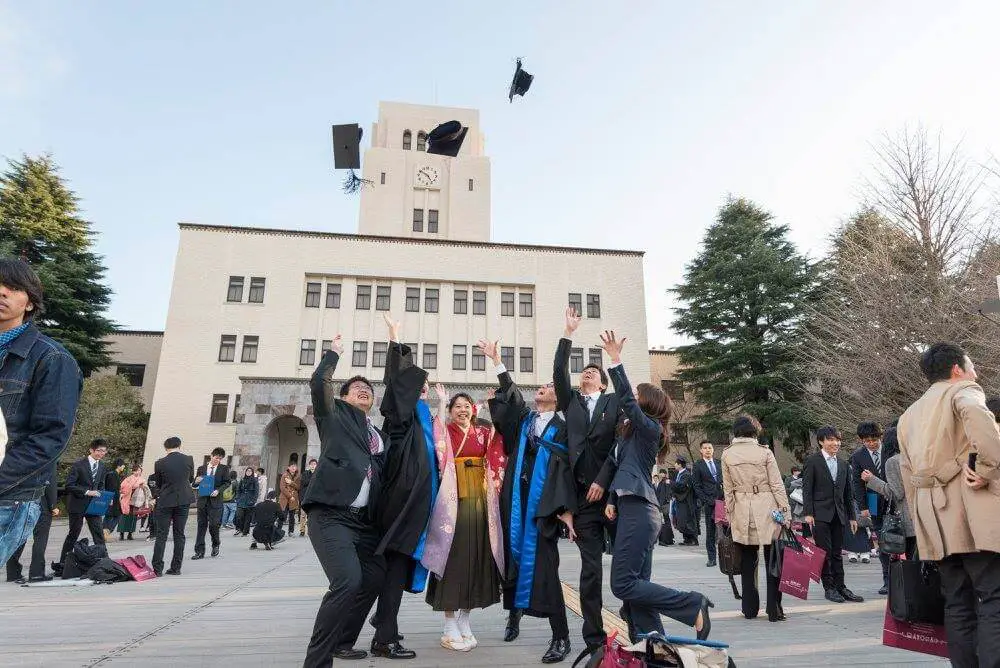
Graduation in Japanese university
- Some exchange students extend their programs in Japan. Some even drop out of their studies in their home countries to move to Japan to enroll in the schools/ universities they have exchange programs at. This is a safe option since you have a semester or a year experiencing academics and life in Japan to decide whether you really want to finish your degree here.
- You can study further education in Japan right away. I highly recommend you visit Japan Study Support which introduces you to more than 1,300 schools including 7000 universities providing international courses. In 2009, Japan launched the Global 30 initiative for full degree programs in English at 13 top universities. There various degrees to choose from:
- University Bachelor’s degree = 4 years
- Graduate School Master’s degree = 2 years
- Doctor’s degree = 5 years
- Professional degree = 2 years
- Junior College Associate’s degree = 2 or 3 years
- College of Technology Associate’s degree = 5 years
- Specialized School Specialist’s degree = 2 or 3 years
- High-level Specialist’s degree = 4 years
- Medicine, Dental Surgery, Pharmacy degree = 6 years
Please note that to apply to Japanese universities, you are normally required to sit the EJU (Japanese University Admission for International Students). Some universities may ask for a special entrance exam for privately financed foreign students. You should also have finished your 12 years of compulsory education and provide the university with a transcript. Last but least, you can not have any issues pursuing a student visa.
Day In The Life At Japanese University:
FAQs:
Is studying abroad in Japan a good idea?
Consider studying abroad in Japan as a kinđ of investment. You can expect high profits from this regarding good job opportunities and living standards. In fact, Tokyo is voted as the third best promising city for foreign students in 2016. However, you should also prepare to solve all the cultural and language issues and the loneliness in a strange city.
How much does it cost to study abroad in Japan?
Japan’s compulsory education including Elementary and Junior High School is free (only in public school). However, school supplies, field trips, and lunches, among other things, must be paid for.
At the university level, even the tuition at private ones (average $12,000-18,000 per year) is still much cheaper than that in the US or UK. Public universities charge less, for instance, the University of Tokyo ($2.462) or the Nanzan University ($4.390), excluding housing.
And the living expenses in Japan can be as below:

How much does it cost to study abroad in Japan high school?
Since the last 3 years of high school in Japan are optional, the tuition is quite high. It ranges from 120.000 JPY ($1140) per year in public school to more than 300.000 JPY ($2800) for private schools. However, there are many extra costs to add such as extracurricular activities or entrance fees (private school). So the total cost would be around 1.500.000 JPY ($14.000) on average, according to edarabia.com
How can I study abroad in Japan for free?
For highschool students, the Japanese government provides Tuition Support in the MEXT program. The support will be less than 304,200 yen. For more details, please visit the official website of MEXT. Schools also offer tuition support to low-income families.
When it comes to higher education, the range of scholarships is wider and much more flexible. The scholarships may be provided by governments, external organizations and by university, for example, The University of Tokyo Special Scholarship for International Students (University of Tokyo Fellowship). You may have to apply for the scholarship before or after your departure, please check the information at the pages related. Here are some popular scholarships for studying abroad in Japan:
- Japanese Government (Monbukagakusho: MEXT) Scholarship
- MEXT Honors Scholarship for Privately Financed International Students
- University Scholarship for PEAK Students
- Scholarships Offered by Private Organizations

